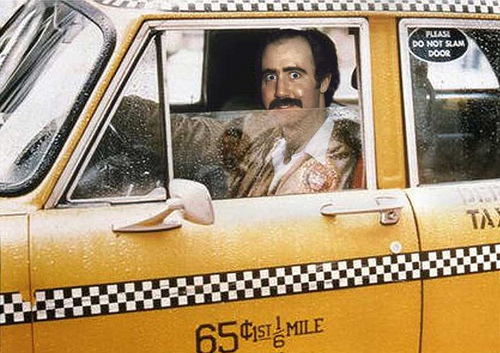Like Steve Jobs during his walkabout between stints as Apple’s visionary, Google’s Larry Page changed for the better in the years he spent in the shadow of Eric Schmidt, the CEO whom investors forced him to hire as “adult supervision.” Although Page still has none of the Apple co-founder’s charisma and communication skills, that social shortcoming might be a blessing some ways, since his vision of a future automated enough to satisfy Italo Balbo might give many pause, and should, despite Page’s good intentions. From Nicholas Carlson’s longform 2014 Business Insider profile of the search-giant leader’s second act:
During a keynote at a Google conference in 2013, Page said that in the long term — “you know, 50 years from now or something” — he hopes Google’s software will be able to “understand what you’re knowledgeable about, what you’re not, and how to organize the world so that the world can solve important problems.”
So, in Page’s vision, if you walk into your house and feel cold, your Google-powered wristwatch will be performing a search to understand that feeling. The search result will be for your Google-powered thermostat to turn up the heat.
Likewise, if you run out of milk and your Google-powered fridge notifies your Google-powered self-driving car to go collect some more from the Google-powered robots at the local grocery warehouse (no doubt paying with your Google wallet), it will all be a function of search.
The key to understanding the diversity of Google’s moonshots is understanding that Page’s vision of “perfect search” only works if all the products you interact with are compatible with one another.
For example, Google’s most advanced search product today, Google Now, is able to do things like alert Android users that they need to leave now if they are going to beat traffic and make a flight on time. But it can only do that because it has access to the Android users’ inboxes, Google Maps, Google Flight Search, Google Calendar, and, of course, the users’ smartphones.
So while it may seem random for Google to get into businesses as diverse as cars, thermostats, robotics, and TV production, there is an overriding objective behind it all: Page is envisioning a world where everything we touch is connected with and understood by an artificially intelligent computer that can discern patterns from our activity and learn to anticipate our needs before we even know we have them. Someday, Page has said several times, this AI will be hooked directly to our brains — perhaps through an implant.
Some of these ideas would scare people if Page were better at talking about them. He is, after all, directing billions of dollars every year toward making them a reality as quickly as possible. He’s said several times that Google should be employing 1 million engineers. With all of Google’s money, that’s actually possible.
The good news for the world is that Page’s goal of developing a pervasively connected AI that understands and provides for our every need is not about taking advantage of us.
He is, at heart, a passionate utopian — one who believes that technology has overwhelmingly made life better for humans and will only continue to do so.•



